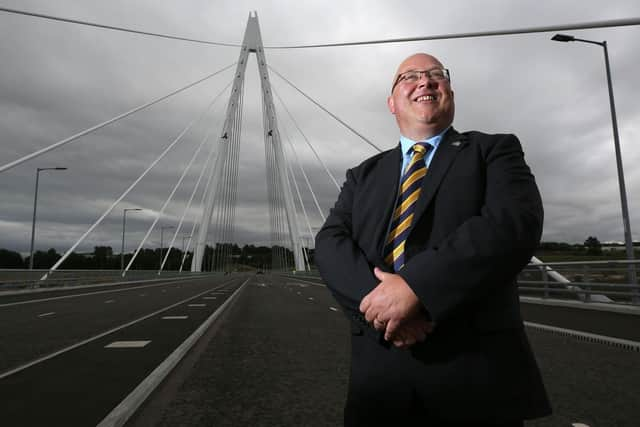Council leader running Sunderland from dining room table - chiefs testing technology to help make key decisions
and live on Freeview channel 276
Shortly after lockdown started in March, bosses at Sunderland City Council approved a raft of emergency powers allowing chief executive Patrick Melia to make decisions usually reserved for elected councillors.
But plans are being worked on to allow the local authority’s ruling cabinet to meet via video link in May, with more meetings to follow if the trial is successful.
Advertisement
Hide AdAdvertisement
Hide Ad“I’m still doing the same number of meetings, I’ve got virtual meetings with everyone and their dog,” said council leader Graeme Miller, who has swapped his Civic Centre office for his dining room table.


“What will be interesting will be the requirement to hold cabinet meetings and we’re testing the technology to do a virtual meeting from next month.
“But we’ve got to make sure the technology is there and the officers responsible for running it are making sure it could run smoothly.”
Coun Miller also raised the prospect of other important council meetings, such as the annual Mayor Making which usually formally kicks off the new council year, being staged virtually.
Advertisement
Hide AdAdvertisement
Hide AdSeveral councils across the country have successfully conducted video sessions, including Newcastle City Council, which held its first ever virtual meeting this month (April).
South Tyneside Council expects to make its live streaming debut on Wednesday April 29.
Some local authorities have had difficulty with the technology however, with South Somerset District Council disrupted by online trolls.
But Coun Miller has high hopes for video software and expects it to play a key role in the city council’s eventual move to its new ‘City Hall’ base on the former Vaux Brewery site.
Advertisement
Hide AdAdvertisement
Hide Ad“The City Hall won’t have enough desks,” he said, “so we have to have a building which uses our people better, so they can be working from a variety of locations.
“I think more and more people will be able to work from their technology and that will come in more because of the experience people have had with COVID.”
He also predicted the aftermath of coronavirus would see greater appreciation for ‘our care home staff, our shop assistants and our bus drivers, alongside NHS personnel’.
James Harrison